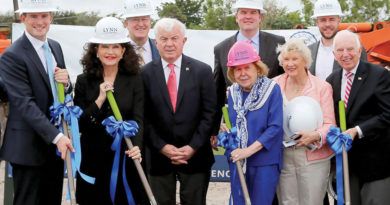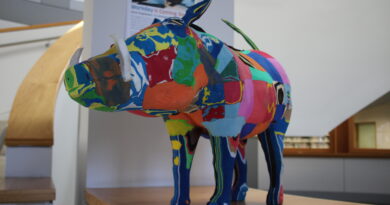European Tensions Escalate
By Ivan Zhykhariev
Staff Writer

As the Berlin Wall fell on Nov. 9, 1989, the indications of the Cold War’s last days were witnessed by the world. The Soviet leaders were composed when addressing the issues of disintegration. However, people no longer feared the mighty state coming after them.
From Jan. 19, 1990 to Dec. 31, 1991 all Soviet republics declared independence as sovereign states, no longer were they dependent on Moscow. New states were reborn from the ashes of what used to be the second most powerful country in the world.
The world enjoyed a certain degree of peace and security for more than 20 years as the Cold War became part of history books.
Peace and security were breached by Russia’s aggressive actions in Georgia in 2008 and earlier this year, when the Russian Federation annexed the Crimean peninsula. Putin’s fears of Ukraine becoming part of NATO were expressed on numerous occasions, having NATO’s presence only 10 hours from Moscow. In 2004, Latvia, Lithuania and Estonia joined NATO in an effort to protect themselves from possible threats coming from the Eastern neighbor.
The February events in Ukraine showed the new government being established after bitter fighting on the streets of the Ukrainian capital. Immediately, Ukraine’s new leaders declared their intention to join NATO and sign the EU agreement. Putin had to act quickly as Russian endorsed fighters ceased to control a dozen of cities in Eastern Ukraine, only few weeks after Crimea was annexed.

Russian separatists are well trained and well equipped battalions, who operate artillery machinery and tanks have become a threat. There are reports that Russia has been supplying the protestors with the newest military equipment as well as financing the Chechen mercenaries fighting in Ukraine.
As the world watches what could be the beginning of a third World War, western generals express different views on the situation in Ukraine and its impact on the security in Europe. General Sir Richard Shirreff, in his interview with BBC Newsnight, claimed that Western Europe would struggle to defend against Russian aggression.
“The reality is that NATO would be very hard pressed and they would find it very difficult to put into the field, at sea or into the air the means required, particularly on land, to counter any form of Russian adventurism,” said Shirreff. “Certainly Western Europe would not be able to defend in my view against Russia without significant support from the Americans.”
“NATO would find it really difficult to get a division (20,000 people) out of the door in quick time. Because certainly in Western Europe what we have seen progressively is a dismantling of military capability,” said Shirreff.
As it stands, the Russian army is significantly, larger in numbers. With a capability of getting three to four divisions in a matter of few days.
President Obama’s visit to Estonia was intended to reassure his European partners that NATO and the US will react promptly if any threat from Russia occurs. The NATO summit in Wales saw the Ukraine issue dominating the discussions.
As NATO agreed to assemble a rapid reaction force as the response to events in Ukraine. The unit will be based in Poland with Britain contributing 1,000 troops in addition to the 3,500 troops from across Europe. Russian foreign ministry reacted rapidly.
“The essence and tone of [NATO] statements on the Ukraine situation, and the plans announced to hold joint NATO exercises with Kiev on the territory of that country before the end of 2014, will inevitably lead to heightened tension,” the Russian Foreign Ministry said in a statement.
As the situation in Ukraine hardly sees a conclusion, European countries are fearful that if Putin gets away with plundering Crimea and Eastern Ukraine, their safety can be jeopardized in the same fashion.



